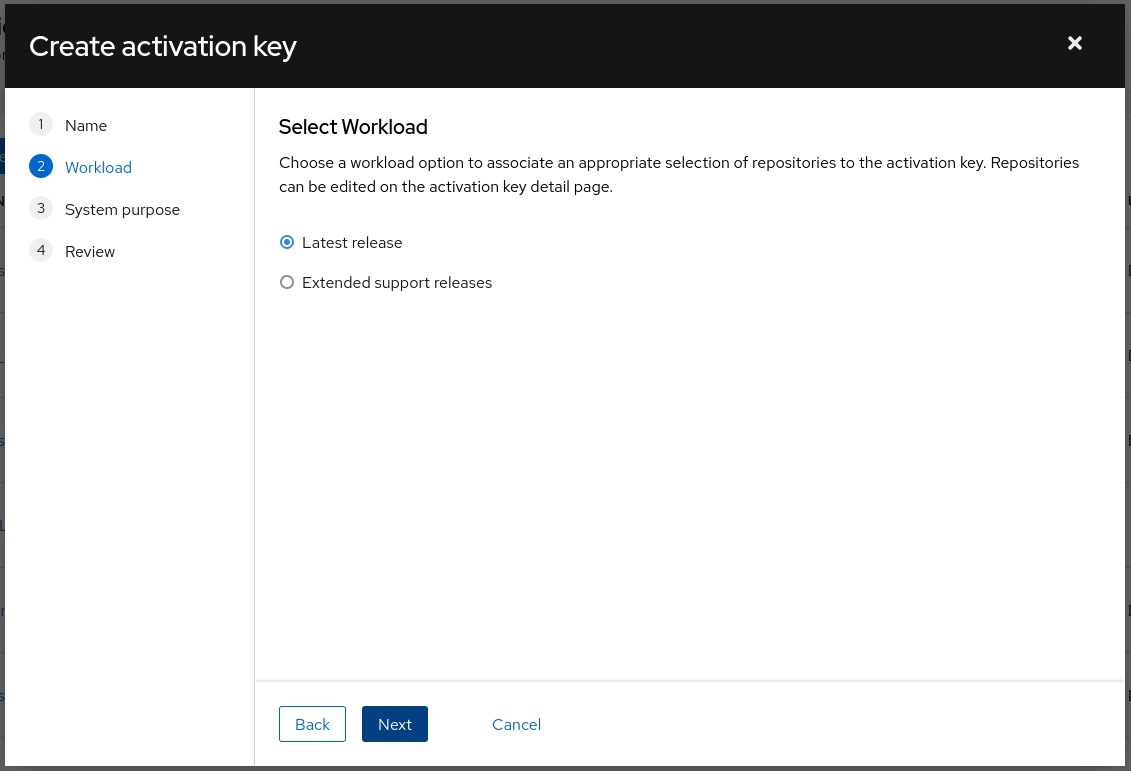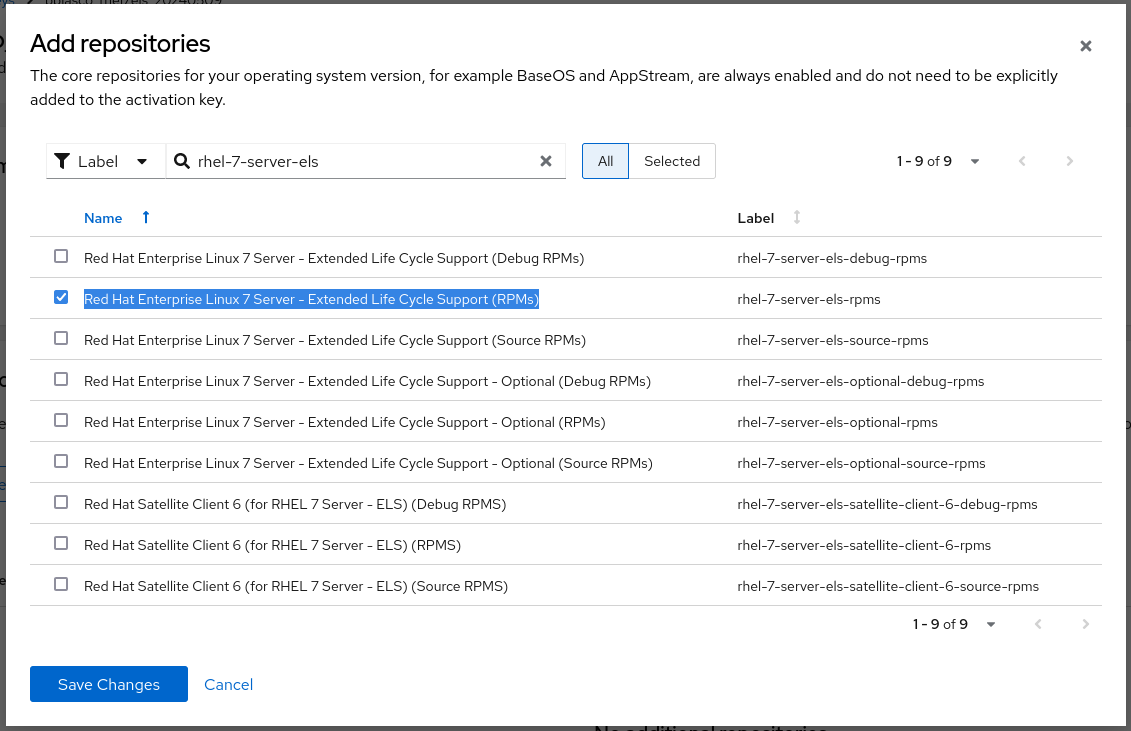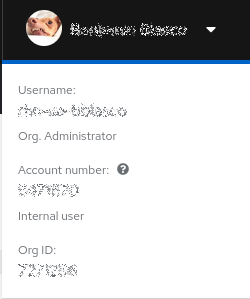benblasco
Ben's personal blogging on technical stuff
Enable Red Hat Enterprise Linux (RHEL) 7 Extended Lifecycle Support (ELS) using BYO Subscriptions
Some background
Red Hat Enterprise Linux 7 reached its end of support phase on June 30, 2024. Red Hat customers who have purchased the Extended Lifecycle Support (ELS) add-on from Red Hat are free to use this both on premises, and in the cloud. Additionally, it can be used for both PAYG (marketplace pay-as-you-go) and BYOS (Bring Your Own Subscription) RHEL in the cloud.
This article describes how to enable RHEL 7 ELS purchased from Red Hat on PAYG RHEL instances in the cloud, but is also applicable to BYOS RHEL on-premises and in the cloud.
Note: This article does not describe how to enable RHEL 7 ELS purchased from Cloud Provider Marketplaces
Additional reading
Please refer to the links below for official information on RHEL 7 ELS from Red Hat.
Red Hat Enterprise Linux 7 Extended Lifecycle Support Maintenance Policy
Procedure
Prerequisites
Please enable Simple Content Access (either per Satellite org for systems registered to Satellite or at access.redhat.com for all others) and Cloud Access for each cloud provider (at console.redhat.com/settings/integrations).
Check the starting status of the host
Check the status of subscription-manager. PAYG hosts are typically not registered with Red Hat, and should report status “Unknown”.
[root@bblasco-rhel7-els ~]# subscription-manager status
+-------------------------------------------+
System Status Details
+-------------------------------------------+
Overall Status: Unknown
System Purpose Status: Unknown
Check the repositories enabled on the host. PAYG instances will use Red Hat Update Infrastructure (RHUI) repositories.
[root@bblasco-rhel7-els ~]# yum repolist
Loaded plugins: amazon-id, product-id, search-disabled-repos, subscription-manager
This system is not registered with an entitlement server. You can use subscription-manager to register.
repo id repo name status
rhel-7-server-rhui-rh-common-rpms/7Server/x86_64 Red Hat Enterprise Linux 7 Server - RH Common from RHUI (RPMs) 243
rhel-7-server-rhui-rpms/7Server/x86_64 Red Hat Enterprise Linux 7 Server from RHUI (RPMs) 34,476
rhui-client-config-server-7/x86_64 RHUI Client Configuration Server 7 9
repolist: 34,728
Check whether subscription-manager is managing repositories for the host. PAYG systems using RHUI will have this set to 0 (zero).
[root@bblasco-rhel7-els ~]# grep manage_repos /etc/rhsm/rhsm.conf
manage_repos = 0
Create an activation key with ELS enabled
Log in to the Red Hat Hybrid Cloud Console at console.redhat.com using your Red Hat ID.
The shortcut to the Activation Keys page is here: Activation Keys
Create an activation key with “Latest release” as the workload:

Save the activation key, then click on it and select “Add Repositories”. Please note that it may take a long time (at least a minute) to load the complete repository list. You can filter on Label with “rhel-7-server-els” to see all related repositories:

Select the “Red Hat Enterprise Linux 7 Server - Extended Life Cycle Support (RPMs)” repository, and any other optional repositories required, then save the changes.

Finally, note the Organisation ID, as this is required for the registration command. This can be found under your name at the top right of the web page.

Register the system, enable management of repositories, and add the ELS repositories
First, register the system using the subscription-manager command. This may not be necessary for BYOS systems already registered with Red Hat.
[ec2-user@bblasco-rhel7-els ~]$ sudo -i
[root@bblasco-rhel7-els ~]# subscription-manager register --org=<MY_ORG_ID> --activationkey=<MY_ACTIVATION_KEY>
The system has been registered with ID: 7bada824-7ee9-430e-88b3-73ec503f7491
The registered system name is: bblasco-rhel7-els
Check whether subscription-manager is able to manage repositories, and then ensure it is set to enabled.
[root@bblasco-rhel7-els ~]# grep manage_repos /etc/rhsm/rhsm.conf
manage_repos = 0
[root@bblasco-rhel7-els ~]#
[root@bblasco-rhel7-els ~]# subscription-manager config --rhsm.manage_repos=1
[root@bblasco-rhel7-els ~]#
[root@bblasco-rhel7-els ~]# grep manage_repos /etc/rhsm/rhsm.conf
manage_repos = 1
Enable the RHEL 7 ELS repository.
[root@bblasco-rhel7-els ~]# subscription-manager repos --enable rhel-7-server-els-rpms
Repository 'rhel-7-server-els-rpms' is enabled for this system.
[root@bblasco-rhel7-els ~]#
Check that the repository is now enabled on the host. Note: In the output below you will see a number of repositories “listed more than once in the configuration”. You can ignore this warning.
[root@bblasco-rhel7-els ~]# yum repolist
Loaded plugins: amazon-id, product-id, search-disabled-repos, subscription-manager
Repository rhel-server-rhui-rhscl-7-rpms is listed more than once in the configuration
Repository rhel-7-server-rhui-debug-rpms is listed more than once in the configuration
Repository rhel-7-server-rhui-extras-rpms is listed more than once in the configuration
Repository rhel-server-rhui-rhscl-7-source-rpms is listed more than once in the configuration
Repository rhel-7-server-rhui-extras-debug-rpms is listed more than once in the configuration
Repository rhel-7-server-rhui-source-rpms is listed more than once in the configuration
Repository rhel-7-server-rhui-rh-common-rpms is listed more than once in the configuration
Repository rhel-7-server-rhui-rpms is listed more than once in the configuration
Repository rhel-7-server-rhui-supplementary-debug-rpms is listed more than once in the configuration
Repository rhel-7-server-rhui-optional-rpms is listed more than once in the configuration
Repository rhel-7-server-rhui-optional-debug-rpms is listed more than once in the configuration
Repository rhel-7-server-rhui-extras-source-rpms is listed more than once in the configuration
Repository rhel-7-server-rhui-optional-source-rpms is listed more than once in the configuration
Repository rhel-7-server-rhui-supplementary-rpms is listed more than once in the configuration
Repository rhel-7-server-rhui-rh-common-source-rpms is listed more than once in the configuration
Repository rhel-server-rhui-rhscl-7-debug-rpms is listed more than once in the configuration
Repository rhel-7-server-rhui-rh-common-debug-rpms is listed more than once in the configuration
Repository rhel-7-server-rhui-supplementary-source-rpms is listed more than once in the configuration
repo id repo name status
rhel-7-server-els-rpms/x86_64 Red Hat Enterprise Linux 7 Server - Extended Life Cycle Support (RPMs) 34,476
rhel-7-server-rhui-rh-common-rpms/7Server/x86_64 Red Hat Enterprise Linux 7 Server - RH Common from RHUI (RPMs) 243
rhel-7-server-rhui-rpms/7Server/x86_64 Red Hat Enterprise Linux 7 Server from RHUI (RPMs) 34,476
rhel-7-server-rpms/7Server/x86_64 Red Hat Enterprise Linux 7 Server (RPMs) 34,476
rhui-client-config-server-7/x86_64 RHUI Client Configuration Server 7 9
Note 1: The ELS repositories contain all RHEL 7 server content, not just ELS content.
Note 2: There is also a rhel-7-server-els-optional-rpms repository you can enable if you were previously using the optional rpms repository
Conclusion
This procedure lets you enable the RHEL ELS CDN repositories for your systems consuming BYOS ELS. You can now run yum update and continue to get security updates according to what is made available in line with the ELS support policy.